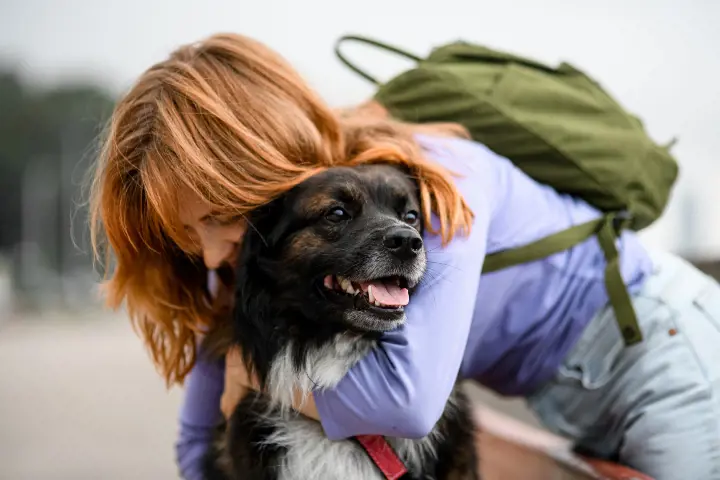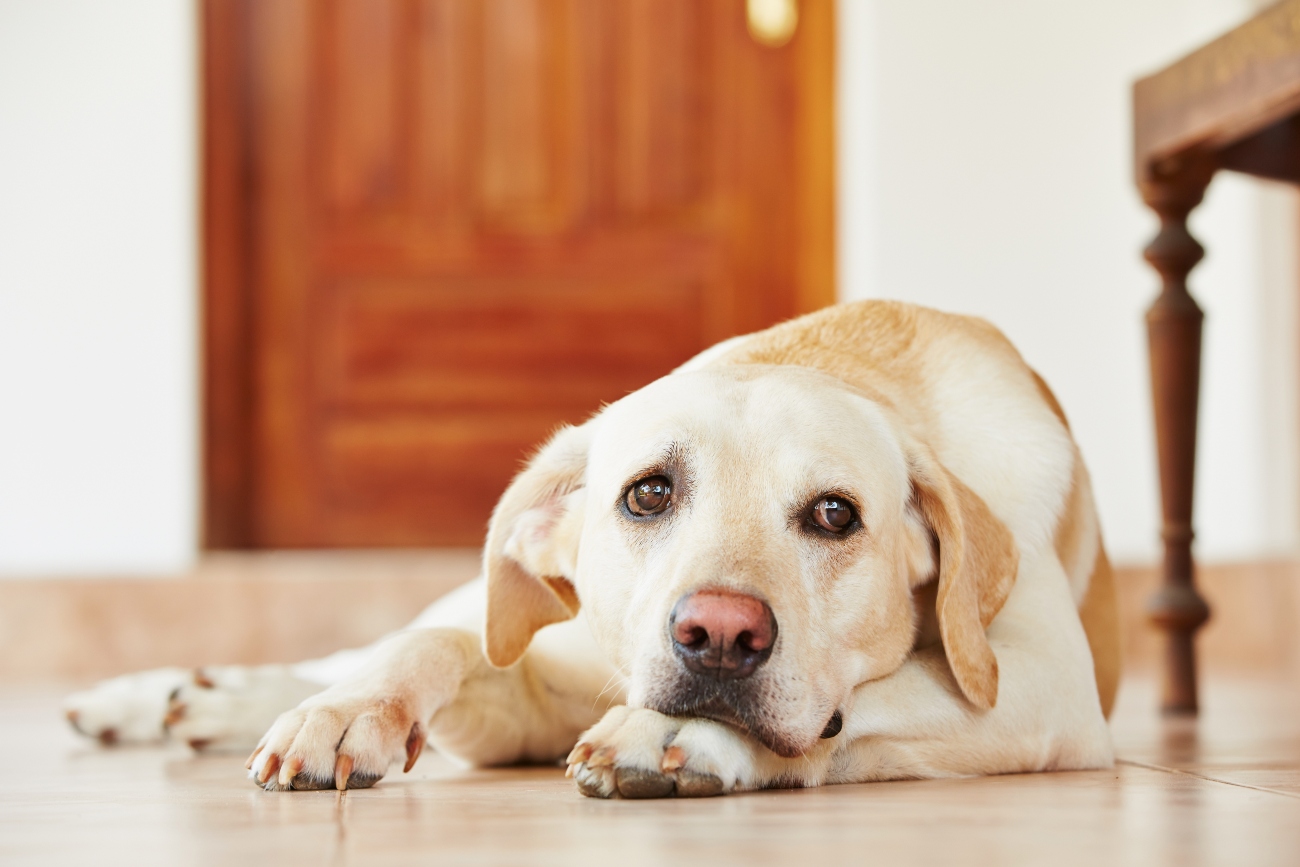How to help a rescue dog settle in
4th December, 2023

Adopting a rescue dog can be one of the most rewarding experiences of your life. These adorable creatures, who have often endured hardship and neglect, are given a second chance at a loving home.
However, the transition isn't always smooth and immediate. It's essential to understand how to help a rescue dog settle in and make them feel safe, loved, and at home.
Understanding your rescue dog's needs
Rescue dogs come from various backgrounds, each carrying its unique set of experiences and challenges.
Some may have experienced trauma, neglect, or abandonment, while others may have simply outgrown their previous owners' capacity to care for them.
Understanding these factors can help you create a welcoming environment for your new furry friend.
Expect the unexpected
Adopting a rescue dog is like opening a book with many unwritten pages. You may have a general idea about their breed and characteristics, but their unique past experiences can add unexpected twists and turns.
It's essential to remain open-minded and patient. The dog you fell in love with at the shelter may behave differently in a new environment.
This is perfectly normal and part of their transition process into their new home.
Get ready: Preparation is key
Preparation is fundamental when bringing a rescue dog home. This means having all the necessary supplies like food, water bowls, comfortable bedding, and toys.
It's also beneficial to familiarise yourself with the dog's current diet and, if needed, shift to a new one gradually to avoid digestive issues.
Slow and steady introductions
Introducing your new furry friend to their new environment, family members, and other pets should be done slowly and carefully. Overwhelming them with too much interaction at once can induce stress and anxiety.
It's best to allow them to spend time exploring their new home and meet family members at their own pace.
The importance of personal space
Creating a secure, comfortable space for your rescue dog is crucial. This "safe haven" allows your pet to retreat when they feel overwhelmed, providing them with a sense of security and control over their environment.
Creating a safe haven
An ideal safe space should be clean, confined, and comfortable. A dog crate filled with soft bedding placed in a quiet corner of the house can serve as a perfect retreat. This area should be consistent and undisturbed, allowing your pet to build a positive association with this space.
Respecting their space
It's vital to respect your pet's personal space. When your dog retreats to their safe haven, they're signalling a need for alone time.
Disturbing them during these moments can cause stress and anxiety. Teach your family members, especially children, to respect the dog's own space.
Establishing a routine
One of the most effective ways on how to help a rescue dog settle in is by establishing a routine. Predictability can be comforting for dogs, particularly for those with uncertain pasts.
A structured routine provides them with a sense of stability and control over their environment.
Consistency is key
Establish a regular schedule for feeding, walks, playtime, and bedtime. Consistency in these routines will reassure your dog and help them understand what to expect in their new home.
Slowly increasing alone time
Separation anxiety is a common issue with rescue dogs. To help them adjust, try not to leave them alone for extended periods during the initial days. Gradually increase the amount of time you spend away, helping them understand that you will always return.
Patient and positive training
Adopting a rescue dog often comes with the task of addressing certain behavioural issues. Whether it's aggression, fear, or house training, remember that patience and positive reinforcement are your best tools.
Understanding their behaviour
Many rescue dogs display behaviours that may seem strange or problematic. It's important to understand that these behaviours are often survival mechanisms developed in response to past experiences.
Positive reinforcement
The use of positive reinforcement can be highly effective in training your rescue dog. Reward good behaviour with treats, praise, or playtime. This approach not only encourages desired behaviours but also strengthens the bond between you and your pet.
The 3-3-3 rule
The 3-3-3 rule provides a basic timeline for your rescue dog's adjustment process, highlighting three significant milestones in their settling in period.
First three days
The first few days can be overwhelming for your rescue dog. They might be anxious and reserved as they adjust to the new environment.
Next three weeks
Over the next three weeks, your dog will start to grow more comfortable and exhibit more of their true personality. During this time, you might observe new behaviours as they test their boundaries.
After three months
After about three months, your rescue dog should be fully settled in. By now, they've likely formed a strong bond with you and feel comfortable and secure in their new home.
Protecting your furry friend
In the midst of all the excitement of bringing a new pet home, it's crucial not to forget about their health needs. Having a dog insurance policy can offer peace of mind knowing that you can recover costs for your pet’s treatment.
To get a dog insurance quote for your furry friend, you can get a quote through our website. Our dog insurance team is also available to assist you at 0330 102 5748. It must be mentioned that pre-existing conditions will be not covered on our dog insurance policies.
Final thoughts

Learning how to help a rescue dog settle in requires patience, understanding, and a lot of love. Remember, each dog is unique and may take their own time to adjust to their new surroundings.
With time and consistent care, your rescue dog will not only become a comfortable member of your household but also a loving and loyal companion.
Helpful Pages
Recent Posts
Pet Insurance Quote
- 98% claims paid *
- Claims paid directly to vets
- 24/7 vet video consultations
- Interest free monthly payments




